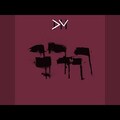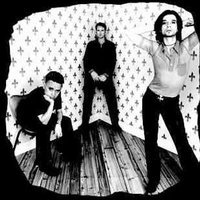"Spirit" is the first Depeche Mode song collection since the launch of "Delta Machine" in 2013. Those of Basildon return with a herculean work and with reminiscences to the industrial past of the group. His new album sucks and breathes recovering the somewhat lazy muscle of his latest studio albums.
Recorded between Santa Barbara and New York, it is the group's first collaboration with producer James Ford of Simian Mobile Disco (Foals, Florence & The Machine, Arctic Monkeys). Listening from the pull traps by its punch, a succession of energetic music with no time for contemplations. The band demonstrates desires for renewal and enthusiasm with their new songs. Far from the self-indulgent repose of the legendary group, it sounds urgent and current.
The entrance door is inaugurated by the formidable 'Going Backwards', a monument with bad slime and blunt pseudo blues that bode well, a song with a circular structure reminiscent of the traditional sound of the group. This powerful introduction leaves on a tray 'Where's the revolution', theme chosen as the first single and in its text refers to the speech given by Lenin on November 7, 1919 and somehow abounds in a political commitment (not a political group ) That has been with them since the days of 'Construction Time Again' (1983).
"The worst crime" shows emotion in the first slow of the disc, a contained song that breaks half way without exploding and that offers a powerful message: "How can we commit the worst crime, we are the judge and the jury , It's too late for fun ".
'Scum' brings back the electronic part of the group combined with the dirt cut blues. 'Your move' offers industrial sound in vein and 'Cover me' tells the journey of a man to another planet where the new is the same as above and gives us back the imaginative part of the group as if it were Ziggy Stardust himself. Powerful and atmospheric 'Eternal' shows the best Dave Gaham of the album, a song where the voice commands and marks the step.
The album ends the last part with 'Poison heart', raw and forceful, a half time that seems out of another time, one of the best pieces of the album and that defines the new proposal of the group. 'So much love', strikes head-on and we see Depeche Mode more recognizable. Industrial sound returns, they return to distortion and their most rocky vein grows and grows to become the cornerstone of the disc. A sensational song with all the ballots to become single and favorite of their direct.
'Poorman' shakes like a hammer with that 80's electronic base, with its round and atmospheric shapes. In 'No More' Gaham is again the protagonist leaving Martin Gore his piece of action in the less successful 'Fail', title song premonitory.
"Spirit" is an excellent record. Since 1981 they have maintained their brand as an inescapable symbol of the avant-garde, and have survived. They build an orderly and powerful work where all those sounds that make them recognizable at the same time show their determined commitment to continue exploring. Some time ago they did not complete an album with three or four notable pieces and in this there are, if there are any.
Recorded between Santa Barbara and New York, it is the group's first collaboration with producer James Ford of Simian Mobile Disco (Foals, Florence & The Machine, Arctic Monkeys). Listening from the pull traps by its punch, a succession of energetic music with no time for contemplations. The band demonstrates desires for renewal and enthusiasm with their new songs. Far from the self-indulgent repose of the legendary group, it sounds urgent and current.
The entrance door is inaugurated by the formidable 'Going Backwards', a monument with bad slime and blunt pseudo blues that bode well, a song with a circular structure reminiscent of the traditional sound of the group. This powerful introduction leaves on a tray 'Where's the revolution', theme chosen as the first single and in its text refers to the speech given by Lenin on November 7, 1919 and somehow abounds in a political commitment (not a political group ) That has been with them since the days of 'Construction Time Again' (1983).
"The worst crime" shows emotion in the first slow of the disc, a contained song that breaks half way without exploding and that offers a powerful message: "How can we commit the worst crime, we are the judge and the jury , It's too late for fun ".
'Scum' brings back the electronic part of the group combined with the dirt cut blues. 'Your move' offers industrial sound in vein and 'Cover me' tells the journey of a man to another planet where the new is the same as above and gives us back the imaginative part of the group as if it were Ziggy Stardust himself. Powerful and atmospheric 'Eternal' shows the best Dave Gaham of the album, a song where the voice commands and marks the step.
The album ends the last part with 'Poison heart', raw and forceful, a half time that seems out of another time, one of the best pieces of the album and that defines the new proposal of the group. 'So much love', strikes head-on and we see Depeche Mode more recognizable. Industrial sound returns, they return to distortion and their most rocky vein grows and grows to become the cornerstone of the disc. A sensational song with all the ballots to become single and favorite of their direct.
'Poorman' shakes like a hammer with that 80's electronic base, with its round and atmospheric shapes. In 'No More' Gaham is again the protagonist leaving Martin Gore his piece of action in the less successful 'Fail', title song premonitory.
"Spirit" is an excellent record. Since 1981 they have maintained their brand as an inescapable symbol of the avant-garde, and have survived. They build an orderly and powerful work where all those sounds that make them recognizable at the same time show their determined commitment to continue exploring. Some time ago they did not complete an album with three or four notable pieces and in this there are, if there are any.




